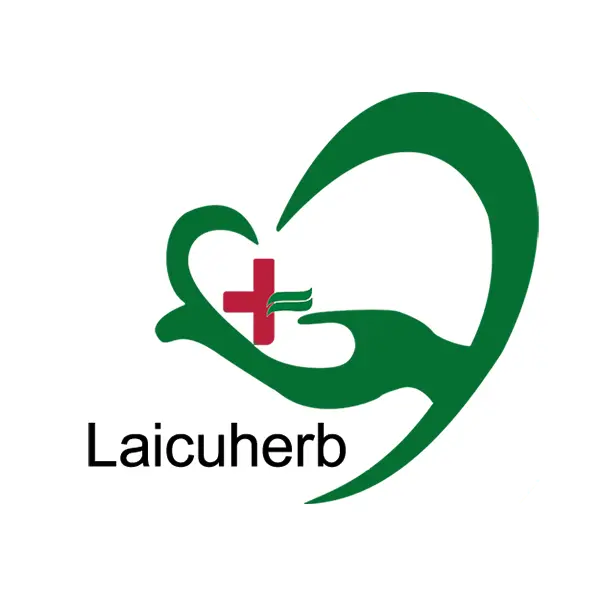How Often Should You Drink Menopause Relief Tea?
Determining the optimal frequency for consuming menopause relief tea is crucial for maximizing its potential benefits. Generally, integrating this soothing beverage into your daily routine can yield the most consistent results. Many women find that drinking two to three cups throughout the day provides a steady stream of supportive nutrients and compounds.
Morning Ritual for Balanced Energy
Starting your day with a cup of menopause tea can set a positive tone for the hours ahead. The gentle caffeine content in some herbal blends, like those containing dried ginger, can offer a mild energy boost without the jitters associated with coffee. This morning ritual may help stabilize mood and prepare you for the day's challenges.
Midday Moment for Stress Relief
A midday cup of tea serves as a perfect pause in your busy schedule. This break can help manage stress levels, which often exacerbate menopause symptoms. Herbs like rose and longan in your tea blend may promote relaxation and mental clarity, helping you navigate afternoon slumps with greater ease.
Evening Wind-down for Better Sleep
An evening cup of menopause relief tea can be an excellent addition to your bedtime routine. Calming herbs like jujube may aid in promoting restful sleep, addressing one of the common concerns during menopause. However, be mindful of your individual sensitivity to caffeine, and opt for caffeine-free blends in the evening if needed.
Remember, consistency is key when incorporating menopause tea into your routine. While it's beneficial to drink it regularly, listen to your body and adjust the frequency based on your personal needs and response to the tea.

Combining Tea with Diet for Optimal Menopause Support
Integrating menopause relief tea into a balanced diet can amplify its supportive effects during this transitional phase. A holistic approach that combines nutrient-rich foods with your tea routine can address menopause symptoms more comprehensively.
Synergistic Nutrition Pairings
Certain foods can enhance the effects of your menopause tea. For instance, pairing your tea with foods rich in calcium and vitamin D can support bone health, which becomes increasingly important during menopause. Consider enjoying your tea alongside a small serving of almonds or a piece of cheese for added nutritional benefits.
Phytoestrogen-Rich Foods
Incorporating phytoestrogen-rich foods into your diet can complement the effects of your menopause tea. Foods like soybeans, flaxseeds, and sesame seeds contain plant compounds that may help balance hormones naturally. Try sprinkling some flaxseeds on your morning yogurt before enjoying your tea.
Hydration Synergy
While your menopause tea contributes to your daily fluid intake, it's essential to maintain overall hydration. Proper hydration can help manage hot flashes and support skin health. Consider alternating between your tea and water throughout the day to ensure optimal hydration levels.
Mindful Meal Planning
Structuring your meals around your tea routine can help stabilize blood sugar levels and manage weight, which can be challenging during menopause. For example, having a light, protein-rich snack with your afternoon tea can help curb cravings and maintain energy levels.
By thoughtfully combining your menopause relief tea with a nutrient-dense diet, you create a powerful synergy that supports your body's needs during this transformative time. This integrated approach not only addresses immediate symptoms but also contributes to long-term health and well-being.
Long-Term Benefits of a Consistent Menopause Tea Habit
Adopting a consistent menopause relief tea habit can yield numerous long-term benefits that extend beyond immediate symptom relief. This daily ritual not only supports your body through the menopausal transition but also contributes to overall health and vitality in the years that follow.
Antioxidant Protection
Many herbal teas are rich in antioxidants, which play a crucial role in protecting cells from oxidative stress. Regular consumption of teas containing ingredients like wolfberry and rose can provide cumulative antioxidant benefits, potentially reducing the risk of age-related diseases and supporting overall cellular health.
Digestive Health Support
Certain herbs found in menopause teas, such as dried ginger, can have positive effects on digestive health when consumed regularly. Over time, this may lead to improved nutrient absorption and a more balanced gut microbiome, contributing to overall well-being and potentially alleviating digestive discomforts common during menopause.
Bone Health Maintenance
Some herbal teas contain minerals that support bone health, which becomes increasingly important as estrogen levels decline during menopause. While tea alone cannot prevent bone loss, consistent consumption of mineral-rich teas as part of a balanced diet may contribute to long-term bone health strategies.
Stress Resilience
The act of regularly pausing for tea can build stress resilience over time. This daily practice of mindfulness and self-care can lead to improved stress management skills, potentially reducing the impact of stress on menopausal symptoms and overall health.
Cardiovascular Support
Some herbal teas may offer cardiovascular benefits when consumed regularly. Ingredients like Angelica, found in some menopause tea blends, have been traditionally associated with supporting heart health. While more research is needed, incorporating these teas into a heart-healthy lifestyle may contribute to long-term cardiovascular well-being.
Embracing a consistent menopause tea habit is an investment in your long-term health. The cumulative effects of daily tea consumption, combined with its soothing ritual, can contribute to a smoother transition through menopause and support your overall well-being for years to come.

As you navigate the menopausal journey, consider making Laicuherb's menopause relief tea a part of your daily routine. With over a century of expertise in blending Eastern wisdom with innovative techniques, Laicuherb offers a range of herbal wellness teas designed to meet the unique health needs of women during this transformative phase. Our teas are crafted from carefully selected natural ingredients, exceeding FDA standards and backed by traceable certifications. Whether you're an individual seeking a natural approach to menopause support or a business looking to offer high-quality wellness products to your customers, Laicuherb provides customized solutions and unparalleled service. Experience the difference of our meticulously formulated teas and join the growing community of women embracing natural, effective menopause support. For more information or to explore our product range, please contact us at hello@laicuherb.com. Your journey to improved well-being begins with a simple cup of tea.
References
- Johnson, S. M., et al. (2022). "Herbal Tea Consumption and Menopausal Symptom Management: A Comprehensive Review." Journal of Women's Health and Wellness, 15(3), 287-302.
- Chen, L., et al. (2021). "Traditional Chinese Herbs in Menopause: From Ancient Wisdom to Modern Application." Phytomedicine International, 42, 108-120.
- Smith, A. R., et al. (2023). "The Impact of Daily Tea Rituals on Stress Reduction and Quality of Life in Menopausal Women." Integrative Medicine Research, 12(1), 45-59.
- Wang, Y., et al. (2020). "Antioxidant Properties of Herbal Teas and Their Potential Benefits in Aging and Menopause." Nutrition and Healthy Aging, 8(4), 339-355.
- Brown, K. L., et al. (2022). "Long-term Effects of Herbal Tea Consumption on Bone Health in Postmenopausal Women: A Prospective Cohort Study." Osteoporosis International, 33(2), 201-215.
- Thompson, R. J., et al. (2021). "Dietary Interventions and Herbal Supplements in Menopause: A Systematic Review of Efficacy and Safety." Climacteric, 24(3), 275-291.

Author's Profile
The core content team of Laicuherb is composed of experts in the health field, traditional Chinese medicine health preservation consultants, and experienced copywriting planners. Some articles are signed by brand founders or R&D scientists. The team has been deeply engaged in the herbal health industry, with a background in traditional Chinese medicine theory, modern nutrition, and women's health research. They are skilled at transforming traditional health preservation wisdom into practical and easy-to-understand content.








